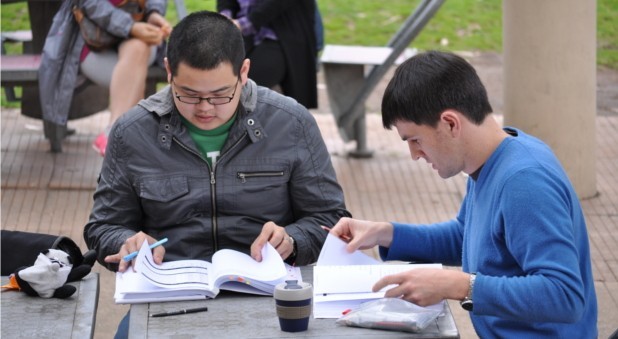A new Centre for Ministry Development (CMD) at Moore Theological College will help to assist ministry leaders across Sydney, equipping them in their own particular contexts.
The Centre, designed to be a “one stop shop” for voluntary ministry development assessment, will direct those serving in ministry towards further training in particular areas.
The Director of the Centre, Moore College lecturer Rev Archie Poulos, says that the early focus of the Centre will be on offering support to people new to paid ministry, particularly those serving as assistant and student ministers.
“What often happens is that the way you learn to minister in the student ministry days and assistant ministry days shapes the way you minister for the rest of your life,” says Mr Poulos, “and that can be either for good or for ill. So we want to make sure that we’re doing really well in helping people in those pinch point times is to be honest, open and willing to develop and assess themselves. That’s the genesis of it all.”
The process that CMD will use to do this is essentially a three step system. First, an in-development self assessment tool will be used to see what ministers think about themselves now, and what their current strengths and weaknesses are. Second, the current ministry setting for that minister will be assessed, with a focus on establishing what kinds of competencies are required in that context, with these being assessed alongside the self-assessment to come up with core group of things that can specifically be worked on. Thirdly, the gifts of the person are assessed, and compared to other ministry settings to see if their particular competencies could fill a need in another setting in the long term.
Mr Poulos says that the Centre isn’t designed to operate by itself, but instead acts like a kind of ministry triage, networking with other organisations such as Evangelism and New Churches (ENC), Effective Ministries (EM), Vinegrowers, and Ministry Training and Development (MTD), amongst others, to create clear avenues that people in ministry can be directed towards. Mr Poulos says he is also in the process of developing an adjunct faculty at Moore College to support the work of the Centre and these organisations.
“The way I describe us is a little bit like a general practitioner,” he says. “If you go to the doctor, the doctor diagnoses, and then sends you off to the appropriate specialists. That’s what we will do, as well. For example, and I’ll give you a real life example, somebody comes and says to me they have a parish where fourteen per cent of the population is made up of people from the subcontinent, within in my geography. I asked him where they hung out, where did they congregate, and he says he actually hasn’t seen these people. So someone like that, I might see about sending them off to Bruce Hall at ENC so they can learn more about cross cultural ministry, and add that to their own ministry.”
Mr Poulos says the Centre will for most of this year be focused on developing the internal structure and tools necessary to achieve its aims, with the program beginning in earnest early next year.
“By October we will have produced a curriculum and the tools we need for 2014,” he says. “We will be launching February 2014 because all the new deacons will be in the program. What we must have before then is training internal mentors, that’s the important step. While we can outsource much of this to other people, we will also need to have some people internally, friends who are well trained as mentors.”























